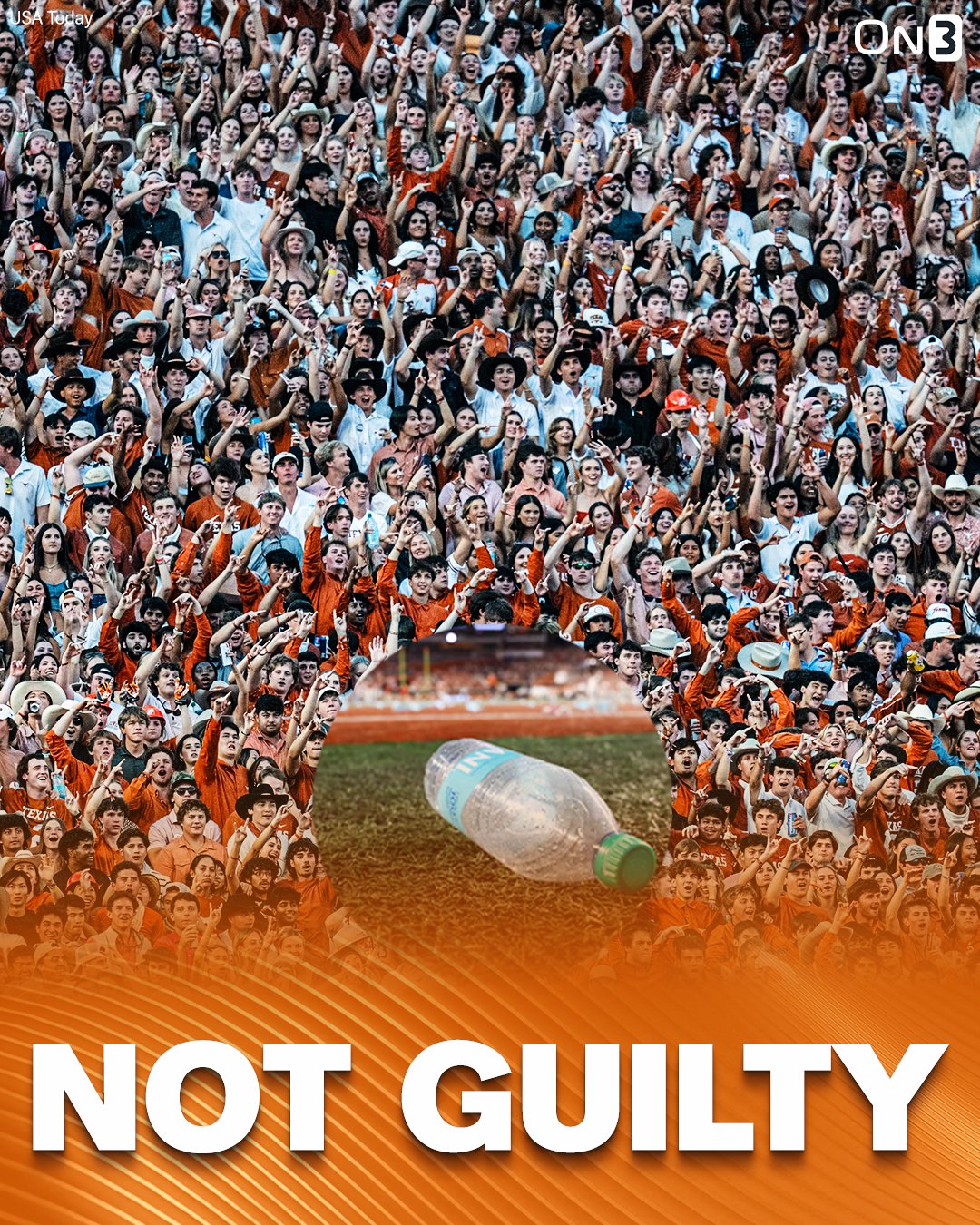No Culprits Found: University of Texas Investigation into Bottle-Throwing Incident vs. Georgia Concludes Without Identifying
The University of Texas has officially concluded its investigation into the bottle-throwing incident that occurred during its recent football game against the Georgia Bulldogs. Despite extensive efforts to identify those responsible, the university announced that no individuals have been caught or punished for the incident, leaving fans and officials alike frustrated.
The altercation, which unfolded late in the heated matchup between Texas and Georgia, involved bottles being hurled from the stands onto the field, narrowly missing players and staff. The behavior drew widespread condemnation, with university officials pledging a thorough investigation. However, despite the availability of surveillance footage and witness accounts, the investigation has yielded no results, raising questions about accountability and crowd management in major college football games.
The bottle-throwing incident took place during the fourth quarter of the game, a tense contest that saw emotions running high. Following a controversial call by the officials, several fans in the Texas student section reportedly began throwing bottles and other objects toward the field. While no players or staff were injured, the incident disrupted the game and forced a temporary stoppage as referees and stadium security worked to restore order.
The behavior was quickly condemned by both the University of Texas and Georgia officials, who called for swift action to identify and penalize the culprits. The Southeastern Conference (SEC) also issued a statement expressing its disappointment, emphasizing the importance of maintaining a safe environment
In the days following the incident, the University of Texas launched an internal investigation, collaborating with stadium security and local law enforcement. Efforts included reviewing surveillance footage, interviewing witnesses, and analyzing social media activity for potential leads.
Despite these efforts, university officials announced this week that the investigation had been closed with no conclusive findings. According to the statement, the lack of clear evidence and the anonymity afforded by the crowded student section made it impossible to identify the individuals responsible.
“We take incidents like this very seriously,” a university spokesperson said. “Unfortunately, despite exhaustive efforts, we were unable to determine who was involved. We will, however, continue to enhance our security protocols to prevent future occurrences.”
The outcome of the investigation has drawn mixed reactions from fans, players, and analysts. Many Georgia supporters expressed disappointment, calling for stricter enforcement and penalties to deter such behavior in the future.
“This sets a dangerous precedent,” one Georgia fan commented on social media. “If no one is held accountable, what’s stopping fans from doing it again?”
Texas fans, meanwhile, have been divided. While some agree that the behavior was unacceptable, others argue that the university’s inability to identify specific individuals makes punishing the broader fan base unfair.
Several Georgia players also voiced concerns, noting that while the incident didn’t escalate into physical harm, it was a reminder of the risks involved in hostile environments. “We understand passion in sports, but there’s no place for throwing objects at players,” one player said.
The investigation’s inconclusive results highlight the challenges of crowd management in college football. Large, rowdy crowds are a hallmark of the sport, but incidents like these underline the fine line between passion and misconduct.
In response, the University of Texas has pledged to implement new measures aimed at preventing similar incidents. These include increased security presence in high-risk areas, enhanced surveillance, and stricter penalties for those caught engaging in disruptive behavior.
The SEC is also reportedly reviewing its policies and may introduce league-wide guidelines to address fan conduct. Possible measures include requiring ticket holders to register with ID, more robust enforcement of alcohol policies, and enhanced collaboration between schools to share best practices.
While the investigation’s conclusion may provide closure for the university, it leaves lingering questions about accountability and safety. For Georgia, Texas, and the SEC as a whole, the bottle-throwing incident serves as a reminder of the ongoing challenges in ensuring that college football remains an environment of passion, not hostility.
Ultimately, the lack of consequences may embolden future offenders, making it all the more critical for institutions to address the root causes of such behavior and enforce stricter preventative measures moving forward. For now, the University of Texas will look to rebuild trust with its fan base and ensure that incidents like this do not tarnish its reputation or the integrity of the game.
